We are an indigenous anarchist family who, as a result of colonization, was thrown into the metropolis to perish at the mercy of our own luck, more specifically in São Paulo, one of the largest metropolises in the world, a great people grinder, with buildings so tall, only surpassed by the cruelty of the colonizer, with prison complexes so vast, only overshadowed by the hunger we have been feeling, and to never let us forget the persecution, a fascist, corrupt, and murderous police force.
Fleeing from the asphalt soil, extreme pollution, lashes, hunger, gunshots, and sirens at night, we migrated, just like our ancestors. Being a Latin American family in times of colonization and industrialization may be one of the greatest challenges a family can face...
We are Abaeté (Afro-indigenous) and Alex, we managed to secure temporary housing far from the terror of São Paulo. We have two indigenous children, a 4-year-old son, and a 4-month-old baby. Additionally, we care for 6 rescued animals, including 4 dogs and two cats, where we have access to land and water, where we plant and reforest, but still, we are encountering extreme difficulties to survive here.
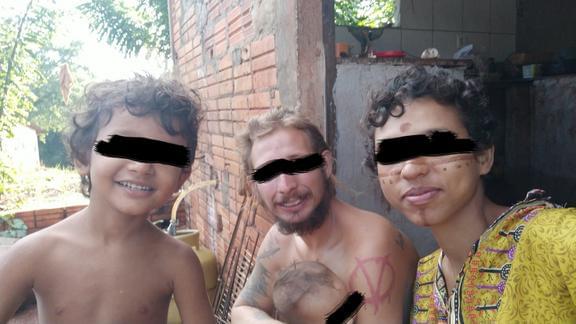
abaete : I would like to introduce myself, but I am exhausted. We are at the limit of overload, and racing against time because hunger is painful." I am a conscious Afro-indigenous marginalized educator, writing and illustrating books to provide access to information for children, especially.
Alex is a punk, anti-fascist, anarchist, volunteer forest firefighter, and volunteer rescuer, working on firefighting in various Brazilian biomes such as the Pantanal, Cerrado, Atlantic Forest, and in various natural disasters such as the collapse of the Brumadinho dam and the landslide in Petropolis. Additionally, he is an instructor in terrestrial rescue and brigades, providing instruction to indigenous peoples, riverine communities, quilombolas, and those fighting for agrarian reform, passing on knowledge about firefighting and first aid. Due to the lack of transportation, he finds himself unable to continue his fight, with no prospect of continuing without your help.
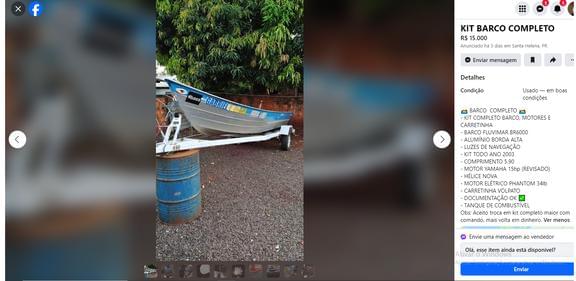

We need help to survive and protect our existence, we need help to protect the land and the forest, we need your help to protect indigenous peoples.
All our food comes from the forests, rivers, and farming. We were privileged with an area of 32,520 square meters (but due to invasion and government restrictions, we can only access 1,500 square meters of planting area at the moment).
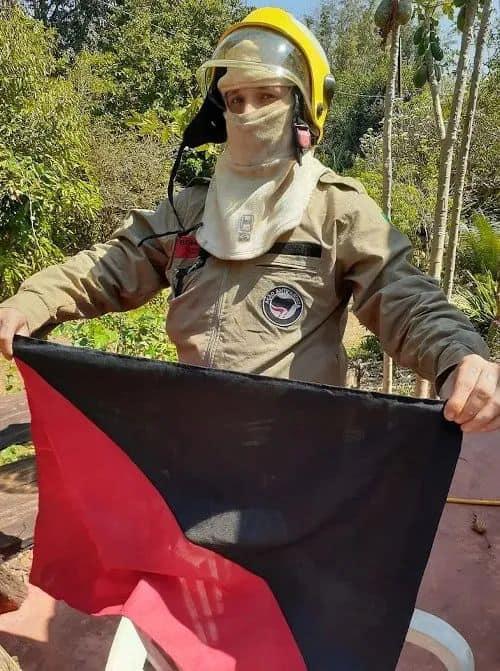
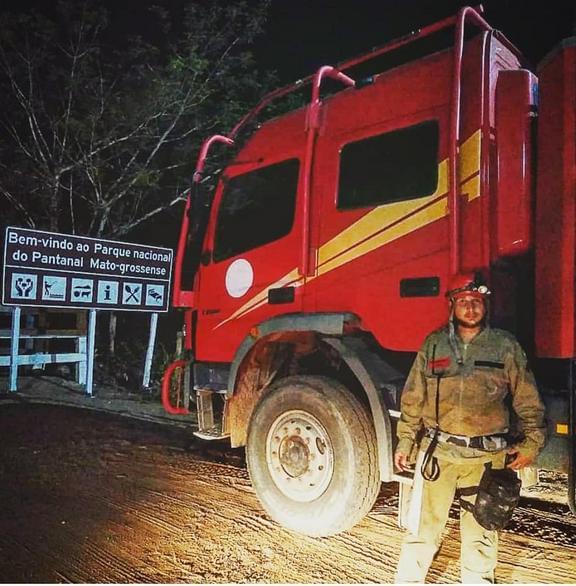
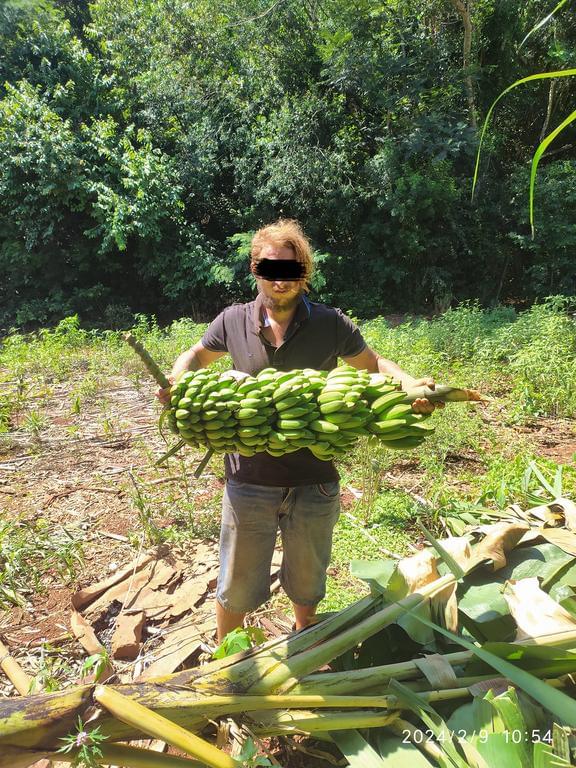
Where we plant various types of food, where we grow tree seedlings, and where we are fighting to reforest, a very tough and arduous battle. Every day we face the brutal harassment of agribusiness, large landowners, colonization, and invaders who try to thwart us in every way possible. Even with a not-so-small area, we face hunger; it hurts to see our child crying with an empty stomach multiple times.
But we have been working the land diligently, steadily expanding our food production. We grow cassava, pumpkin, peach palm, banana, papaya, melon, and various other fruits and legumes, in addition to native Atlantic Forest tree seedlings for reforestation. But hunger goes beyond food; it's about food insecurity, denial of our ancestry, and the lack of time forcing us to cook on a gas stove fueled by petroleum exploitation.
As long as other people are hungry, we will also be hungry, regardless of how full our refrigerator is or how much our planted land is producing. It will all be in vain if this food and these trees do not reach the people who need them.
Some say we are lazy, that we don't like to work. Then I ask myself, should we like to work? Suffocated by ties, uniforms, squeezed into buses like sardine cans, selling our souls for a few stale bread. But if it serves as any consolation to them, we work, and we work hard, with machetes at our waist and hoes in our hands, we work our whole lives. Our ancestors, against their will, were forced to work in factories and didn't even receive the crumbs of capital. We will not allow only crumbs to be left for our children or any other child of the earth. WE REFUSE TO LIVE IN GULAGS.
Today we live in a wooden house, more than 50 years since it was built. The house is in a state of deterioration, but we are slowly managing to fix it.
Next to our house lives a couple of harassing invaders who poison our land, hinder transportation, and we are surrounded by agribusiness.
We live 5 km from the nearest town, a town with 5,000 inhabitants. We live about 10 km from the Paraná River, the border with Paraguay, a river that, in both its Brazilian and Paraguayan parts, is home to several indigenous communities, which we have no access to. Just as we have no access to the river, the lake, or any other place, whether to take food, exchange knowledge, we are trapped within this land with agribusiness massacring us.
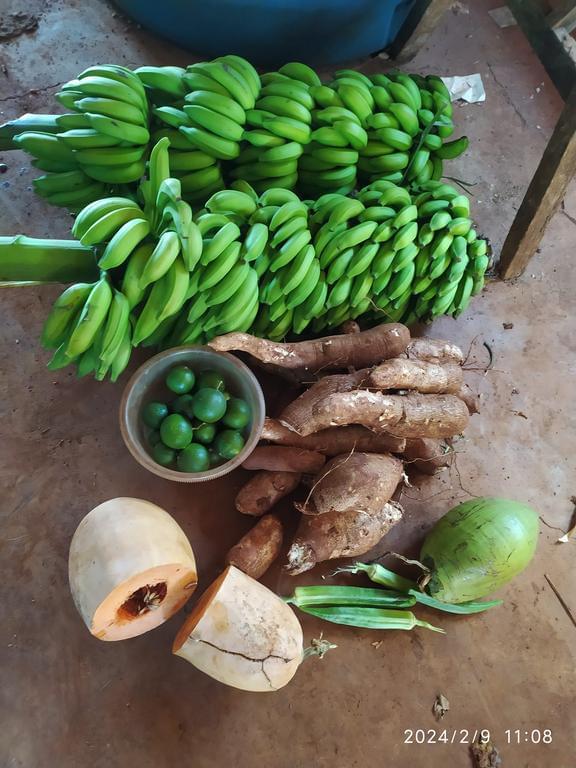

A few months ago, we managed to buy an old car, with over 40 years of use. On the first day of use, the engine blew. It has been sitting idle for months and cannot be repaired.
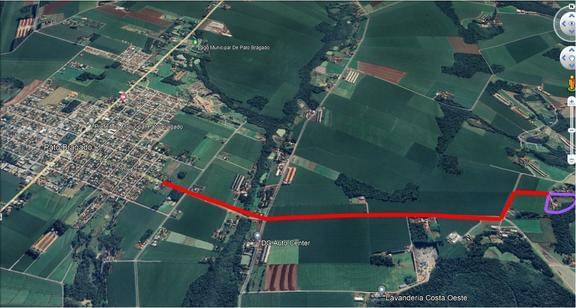
Sometimes we have to walk to the city to fetch something, under scorching sun, pushing a baby stroller with a newborn inside. Along this road, the traffic of trucks is huge, and there's no shoulder. We all go together because staying alone at home is very risky.
Today, what we need to proceed with our ongoing projects (food distribution, tree replanting, children's education, firefighting and rescue brigade, reforestation, etc.) is a car and a boat. Here in Brazil, we are strongly feeling the impacts of wars and political crises; purchasing power is decreasing, and inflation is hitting us hard. The money we earn barely covers the bills, especially since we don't have paid work due to the projects. 100% of our time is divided between caring for our children, trying to survive, and advancing the projects, so we don't have the financial means to buy a car and a boat. We believe that soon we will be producing enough food to distribute to riverine communities, as well as providing other types of assistance.
With 5,000.00 euros (approximately 25,000 Brazilian reais), we would be able to buy a not-so-new car, a 1998 model, but it would at least temporarily meet the demand for land transportation, offering us the minimum autonomy and security. We would also be able to buy a set of boat, trailer, and motor to move along the river, accessing communities that we currently cannot reach.


We are writing this message quickly because they are going to cut off our internet (supposed "overdue debts").
Our contacts:
email: [email protected]
instagram: https://www.instagram.com/qap_alex/
I'm having difficulty accessing Instagram, but it contains various records. If you'd like to take a look, there's Aimê's channel containing her artworks as well as reports of our situation and needs. https://www.youtube.com/channel/UCZjUzDAAvyRDRAsa83QaN8Q
Gratitude for reading this far, comrades. We count on your help to keep fighting. Antifascist greetings.
0% of €5000
€0 reached in total
-493 days left